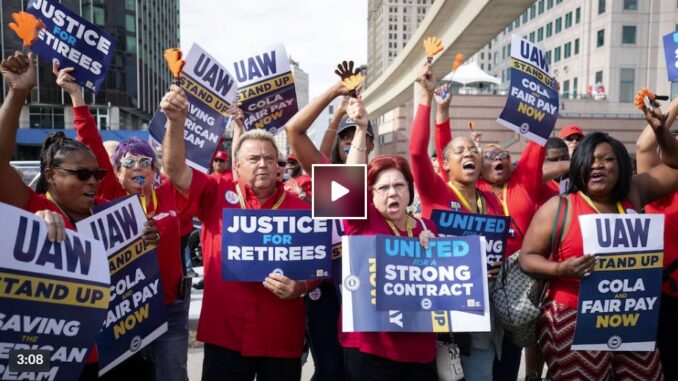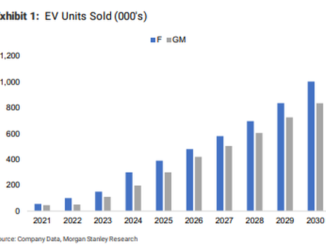
Priorities are everything in business as they are in life, and Ford CEO Jim Farley made it crystal clear where his priorities lie in the leadup to the ongoing UAW strike that began last Friday.
In an interview with CNN’s Jake Tapper last week, Farley left no room for doubt that his company’s pursuit of government subsidies for the ongoing EV transition far outweighs any real concerns about the company’s employees. Even though he admitted during the company’s 2nd quarter earnings – i.e., massive losses – call several weeks ago that Ford plans to lose $4.5 billion on its EV unit in 2023 alone, Farley told Tapper that nothing the UAW demands can cause him to steer his company away from his plans to continue feeding at the massive government trough.
It’s all EV or nothing at Ford.
Here’s an excerpt from a story at JustTheNews.com:
Farley said that while the company wasn’t opposed to wage increases in the double digit range, going to 40% would put the company out of business and he would not cut Ford’s push for EVs, even though the company is expecting to lose $4.5 billion this year alone on them, according to Fox Business.
“There’s a fine line here that we won’t go past, which is we want everyone to participate in our success,” Farley said. “But if it prevents us from investing in this transition to EVs and in future products like the ones we have now, like the new F-150, best-selling vehicle in the world — in the U.S., then everyone’s job is at risk if we don’t invest.”
In case you missed it, Farley told investors and reporters on his Q2 earnings call that the company’s “success” in its EV unit amounts to losing more than $67,000 per unit sold. That’s even after all the billions it takes in in government largesse, all of which is funded through the printing of more dollars and issuance of more debt.
In a bit of unintentional hilarity, some analysts are warning now that a prolonged strike could result in a profound setback in the EV transition. “We believe a strike lasting longer than 4 weeks would be a body blow to the EV ambitions of GM and Ford in 1H24 and delay many aspects of this initial important EV push,” WedBush Securities analysts wrote investors last week.
But the UAW claims to remain unconcerned by such trivia in its pursuit of a bigger cut of the government-subsidized pie for its members. “We will not let the EV industry be built on the backs of workers making poverty wages while CEOs line their pockets with government subsidies,” UAW President Shawn Fain wrote in an op-ed.
For the record, the average worker at Ford Motor Company earns about $67,000 per year. In Bidenflation world, that now amounts to “poverty wages” according to the head of the UAW.
Yeah, more debt-funded government subsidies will surely solve that issue, right?
You just cannot make this stuff up, folks. Don’t even try.
That is all.
ENB Top News
ENB
Energy Dashboard
ENB Podcast
ENB Substack



